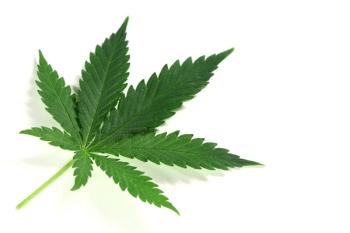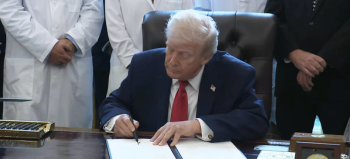
Cannabinoids Are Key: Highlights from a Webinar on Treating Dementia with Cannabis
The webinar "Cannabis and Dementia: Unlocking the Potential" was held on June 14, 2023, and featured four panelists’ experiences treating dementia symptoms with cannabis.
The Alzheimer’s Association has declared June to be Alzheimer’s and Brain Awareness month, and there are many questions surrounding cannabis as a treatment for this disease with no currently known cure (1).
On June 14, 2023, at 7pm ET, cannabis education and product resource Healer presented a
Dr. Sulak began with covering over a dozen international clinical publications from the late 1990s and up to recent years. He noted the cannabinoids used in each study and which dementia symptoms were treated, provided caregiver and staff reactions, plus gave his analysis of where more information–such as the effect of terpenes–was needed. He explained that while cannabis is important, it is one of several factors in a multi-pronged approach to treating diseases such as dementia.
The first panelist was Sherry Yafai, a cannabis physician in Los Angeles, California, who provided a global data presentation on various studies, plus her observations with two of the 35 patients her team has worked with. She covered which non-cannabis medications her patients started on and how the introduction of cannabis improved their symptoms. One point she made was that the brain changes with age and is not a stagnant organ, which was important when considering the presumed effects of tetrahydrocannabinol (THC) on cognition and memory.
Presenting next was Jeff Hergenrather, a founding member of the Society for Cannabis Clinicians and now in private practice for cannabis consultations in California. He noted the similarities between the structures of the two compounds anandamide and THC, explained the variability of cannabis cultivars, plus explained how high-fat meals affected THC absorption. He also shared stories of two of his patients in nursing facilities, how he selected cannabinoids and dosing for their treatment, and the changes in their symptoms such as agitation and wandering.
Eloise Theisen, nurse practitioner and palliative care advanced practice provider, shared a review of the 76 patients in assisted living facilities in California that she has seen in her practice, going in-depth on the symptom management of three in individuals particular. She pointed out that while there are Food and Drug Administration (FDA)-approved drugs for treating the disease, there are no FDA-approved medications to treat the neuropsychiatric behaviors that dementia patients can experience–including restlessness, screaming, anxiety, aggression, and eating disorders–which can present challenges to caregivers as well. She also shared her experience with Title 22 in California, which states that as long as certain labelling and storage conditions are met, the facility cannot withhold the cannabis product from a patient.
Finally, Bonnie Goldstein, Medical Director and Owner at Canna-Centers Wellness and Education in California, explained that though her primary focus is with children and epilepsy, she has seen older patients earlier in her career or as elderly family members of her pediatric patients. Dr. Goldstein discussed how the endocannabinoid system ages, and shared two detailed patient stories, explaining the symptoms; dosing of cannabidiol (CBD), THC, tetrahydrocannabinolic acid (THCA), and cannabidivarin (CBDV); input and reactions from family members; plus the results. She highlighted examples of how quality of life had improved for her patients.
After the panel presentations, Dr. Sulak first emphasized some of the key talking points covered by the panelists:
- Inter-individual variability when considering protocols for dosing
- Drug substitution with cannabis
- Being aware that CBD can decrease appetite
- The improvement of not just severe symptoms, but also of daily functions
Then Dr. Sulak asked a few questions of the panel. Topics included which symptoms are most likely to respond to cannabis, what is the average timeline to see results, what are the biggest challenges the panelists were seeing, and the possibility of using cannabis as a preventative action against dementia.
Finally, the attendees were able to ask questions of the panelists; topics included cannabinol (CBN) and the neuroprotectivity of cannabinoids.
This webinar was sponsored in part by Cannabis Science Conference.
Reference
- June is Alzheimer’s & Brain Awareness Month
https://www.alz.org/abam/overview.asp (accessed Jun 15, 2023).
Newsletter
Unlock the latest breakthroughs in cannabis science—subscribe now to get expert insights, research, and industry updates delivered to your inbox.



